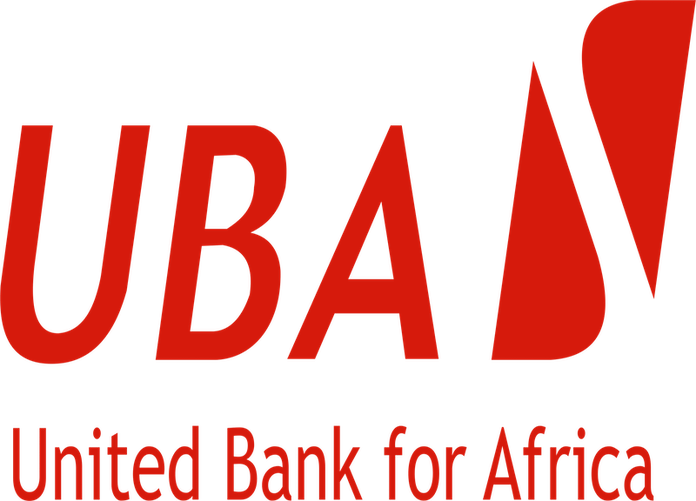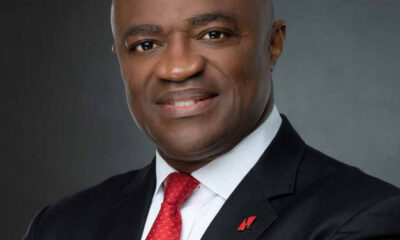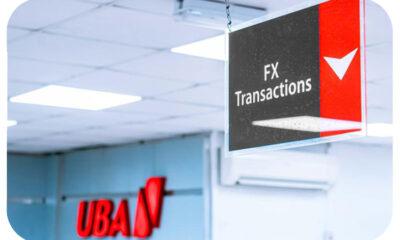- UBA Grows Profit by 8.5% in Q1 2020
United Bank for Africa (UBA) Plc grew profit before tax by 8.5 percent year-on-year to N32.7 billion, up from N30.2 billion filed in the same period of 2019.
In the unaudited financial results released on the Nigerian Stock Exchange, the bank records double-digit improvement across major income lines.
The lender’s Return on Average Equity (RoAE) rose by 20 percent year-on-year during the period under review. The bank’s gross earnings rose by 11.8 percent year-on-year to N147.2 billion in the first quarter from the N131.7 billion filed in the first quarter of 2019.
The bank’s total assets expanded by 13.5 percent from N5.6 trillion in the corresponding period of 2019 to N6.4 trillion in the first quarter. Similarly, shareholders’ funds rose from N597.9 billion filed in the same period of 2019 to N612.6 billion.
Speaking on the performance, Kennedy Uzoka, GMD/CEO of United Bank for Africa (UBA) plc, said: “We are pleased with our top and bottom lines in the first quarter of 2020, delivering N147.2 billion in gross earnings and profit before tax of N32.7 billion. The double-digit growth in the topline testifies to the resilience of our business model as a group, even as the 17 percent growth in our fees and commission income underscores our diversified business model, enabling us to deliver best value to our stakeholders, even in tough macroeconomic scenarios,” Uzoka said.
“I am very excited about recent successes we have recorded in all our business segments, especially our retail and electronic banking businesses within the period, with retail deposits accounting for 72 percent of customer deposits even as cost-of-funds moderates to 3.3 percent. We will continue to grow market share in all our markets, whilst maintaining cost discipline across our businesses, driving efficiency in our processes using best-rated technology.”
On customers’ growing concerns on banking services during the lockdown, Uzoka explained that the lender has put in place measures to ensure customers’ transactions are largely unaffected by the COVID-19 pandemic lockdown.
“In response to the spread of COVID-19, several national governments have announced a partial or total lockdown in a number of our markets, post Q1 2020. Fortunately, we have built robust electronic channel platforms to enable us effectively serve our customers from the convenience of their homes. Despite the lockdown, our banking channels have remained open to our customers 24/7, even as we continue to align and adapt our operating model to ensure we service our customers excellently and safely,” he said.
Ugo Nwaghodoh, the group chief financial officer, who also commented on the positive performance added that the financial institution’s profitability ratios are strong and attest to the bank’s good earnings quality and cost efficiencies.
“We recorded a return on average equity (ROAE) of 20 percent for the period, bolstered by a net interest margin of 6 percent and 11.6 percent growth in net fee and commission income. Amidst the volatile operating environment, the bank recorded a net loan growth of 9.5 percent whilst maintaining our low to moderate risk appetite,” Nwaghodoh said.
“Remarkably, our operating income grew 12.2 percent, giving credence to improved operational efficiency across the group, and the increasing contribution of subsidiaries to our earnings base. We are exploring and taking advantage of all opportunities to improve our operational and balance sheet efficiencies, given the prevailing market conditions,” he said.




 Forex3 weeks ago
Forex3 weeks ago




 Naira2 weeks ago
Naira2 weeks ago
 Billionaire Watch2 weeks ago
Billionaire Watch2 weeks ago




 Naira2 weeks ago
Naira2 weeks ago




 Naira2 weeks ago
Naira2 weeks ago




 Naira1 week ago
Naira1 week ago




 Naira4 weeks ago
Naira4 weeks ago




 Naira3 weeks ago
Naira3 weeks ago















